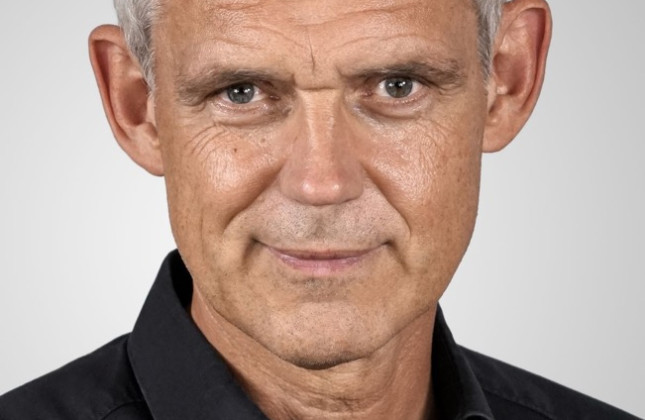Black hole
In 2000, Falcke coined the term "black hole shadow" for the effect of light distortion around a black hole, and predicted that it should be possible to image a black hole. He later launched the idea for a network of radio telescopes around the world. This became the Event Horizon Telescope (EHT), within which Falcke became the chairman of the Scientific Council.
On 10 April 2019, EHT researchers announced via press conferences around the world that they had succeeded in photographing a black hole for the first time. This was the first direct visual evidence of the existence of a supermassive black hole and its shadow. The image showed M87*, the black hole at the centre of Messier 87, a colossal galaxy in the nearby Virgo cluster.
With the EHT, scientists have a tool to study the most extreme objects in the universe, which Einstein predicted with the General Theory of Relativity. The experiment was repeated with measurement data from 2017. This experiment resulted in an image of M87 in polarised light in 2021. In 2022, the EHT scientists managed to publish the first image of the supermassive black hole at the centre of our Milky Way, confirming the presence of supermassive black holes.
Team effort
"It is a great honour to receive this award," Falcke says of his nomination. "After almost 30 years of hard work, together with many colleagues worldwide, it was an emotional moment when the images were published in 2019, and again last year. The award is a tribute to this global commitment," Falcke says. He continues: "It is a great feeling to be able to say that we can confirm one of Einstein's most fundamental predictions about black holes, the Theory of Relativity."
The EHT is an example of global cooperation that required close collaboration between researchers from all over the world. Thirteen partner institutes worked together to make the EHT a reality. From the Netherlands, through the ERC-funded BlackHoleCam project, astronomers from the University of Amsterdam, Leiden University and JIVE-ERIC are also involved in the project, as well as the NOVA submm group at the University of Groningen.
Africa Millimetre Telescope
Falcke is currently working on an extension of the EHT on or near the Gamsberg Mountain in Namibia, the Africa Millimetre Telescope. In collaboration with the University of Amsterdam, Oxford University, University of Namibia and Turku University, the telescope is designed to take even higher resolution images of the inner regions around a black hole. The project is funded by the ERC, NWO and Radboud University. Through a Fellowship Fund, the AMT project offers scholarships to Namibian students to study astronomy. "With part of the prize money, we can make an even bigger impact on the lives of young African scientists by supporting them in research projects related to the AMT and black holes. This really makes a difference for the exchange of knowledge between Europe and Africa, and nurturing young talent," Falcke said.
Balzan prizes
The Balzan Prizes have existed since 1956 and are awarded annually "to promote culture, science and the most meritorious initiatives aiming at humanitarianism, peace and fraternity among people around the world". The award categories are humanities, social sciences and the arts; physics, mathematics, biology and medicine. The four prize winners will each receive CHF 750,000 to spend freely on research in their fields. The condition is that at least half is spent on projects involving young scientists.
- International Balzan Prize Foundation
- View the Radboud profile page of Prof Dr Heino Falcke
- https://www.blackholehunters.space/
- www.heinofalcke.org
